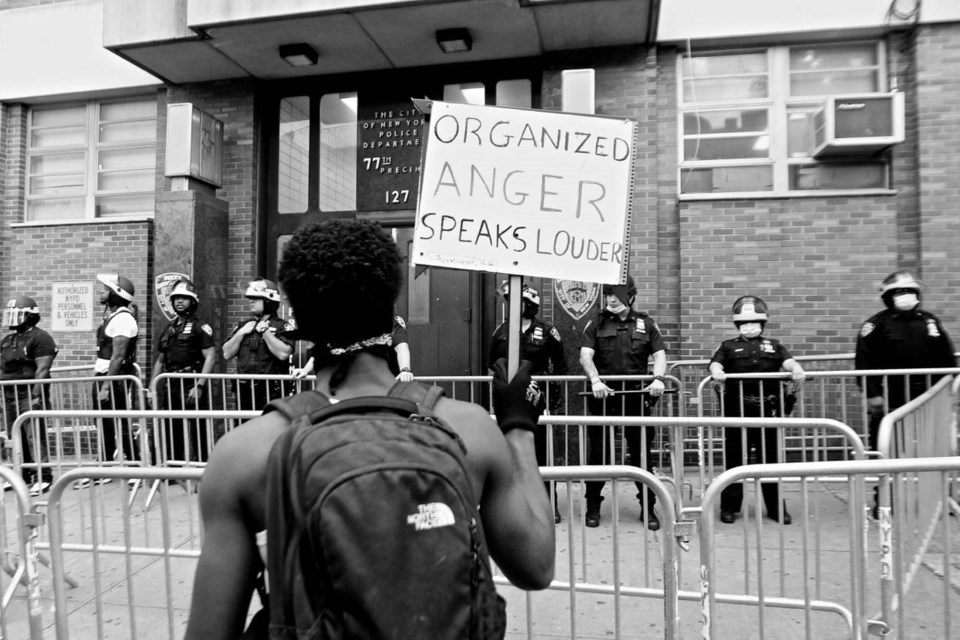By: Rob Fields, Executive Director, Weeksville Heritage Center
The recent extrajudicial murders of George Floyd, Breonna Taylor and Ahmaud Arbery add to a long list of Black men and women who have fallen victim to the pernicious afflictions of racism and white supremacy.
Their murders have further traumatized our community, which is still reeling from the disproportionate impact of not only the coronavirus pandemic, but also decades of systematic healthcare and economic disparities.
The protesters are asking a simple, yet profound question that has yet to be adequately answered. As activist and Temple University professor Dr. Marc Lamont Hill has put forth, "What does justice demand?" One answer is accountability and a real commitment to dismantling white supremacy.
Historic Weeksville became one of the largest free black communities of pre-Civil War America partly because it was a safe haven for Black people from white terror and dehumanization. But it wasn't just an agglomeration of individuals who retreated from society, seeking only to improve their individual lives. Rather, it was a place where people came together with a sense of shared responsibility and purpose, which compelled their involvement in the ongoing efforts for justice and equity that were prevalent at that time, including the abolition and black convention movements, voting rights campaigns and the Freedmen's schools.
We now stand with the protestors against injustice and the police brutality that has taken loved ones from too many Black families. We hope that this can be a moment of reckoning, when police officers will finally be held accountable for their actions in the communities they purport to serve. To do that, we must elect district attorneys who are willing to bring charges against officers, where applicable. Civilian review boards must be given real, not ceremonial, power. States should repeal the police secrecy laws. And, according to The Guardian, the movement to defund police departments is gaining momentum.
Sadly, our present situation was foretold. The 1968 Kerner Commission report, formed in the wake of the long, hot summer of "riots" in 1967, squarely identified white racism as the reason for the upheaval the nation saw then, and that we're seeing now. The Smithsonian Magazine recently summarized the report's findings by stating:
Bad policing practices, a flawed justice system, unscrupulous consumer credit practices, poor or inadequate housing, high unemployment, voter suppression, and other culturally embedded forms of racial discrimination all converged to propel violent upheaval on the streets of African-American neighborhoods in American cities, north and south, east and west. And as black unrest arose, inadequately trained police officers and National Guard troops entered affected neighborhoods, often worsening the violence.
If our country is to move forward, it's critical that we understand these latest urban uprisings not as wanton destruction but, as the Smithsonian article notes, as "political acts of self-defense and racial liberation on a mass, public scale."
Black people have tried kneeling. We've tried advocating for change through legislative channels. We've tried to stress that black lives matter, too. Those efforts failed to change enough hearts and minds so that the culture would recognize black humanity. This is why people are in the streets across America and the world. We stand with our colleagues at other cultural institutions, our Brooklyn community, and the world's citizens in calling for and demanding accountability and an end to systemic racism. We also call on our white colleagues at other cultural organizations to embrace and develop anti-racism as both a personal commitment and an institutional policy. Some helpful resources are here, courtesy of museum diversity advocates MuseumHue.
As we all take stock of how to be of service, please consider familiarizing yourself with--and supporting--some of the many organizations doing important on-the-ground work for justice, including:
- Brooklyn Movement Center
- Equality For Flatbush
- Brooklyn Bail Fund
- The Bail Project
- Communities United For Police Reform
- Movement for Black Lives
- Color of Change
- NAACP Legal Defense Fund
This is the work that justice demands.
In solidarity,
Rob Fields, President & Executive Director, Weeksville




